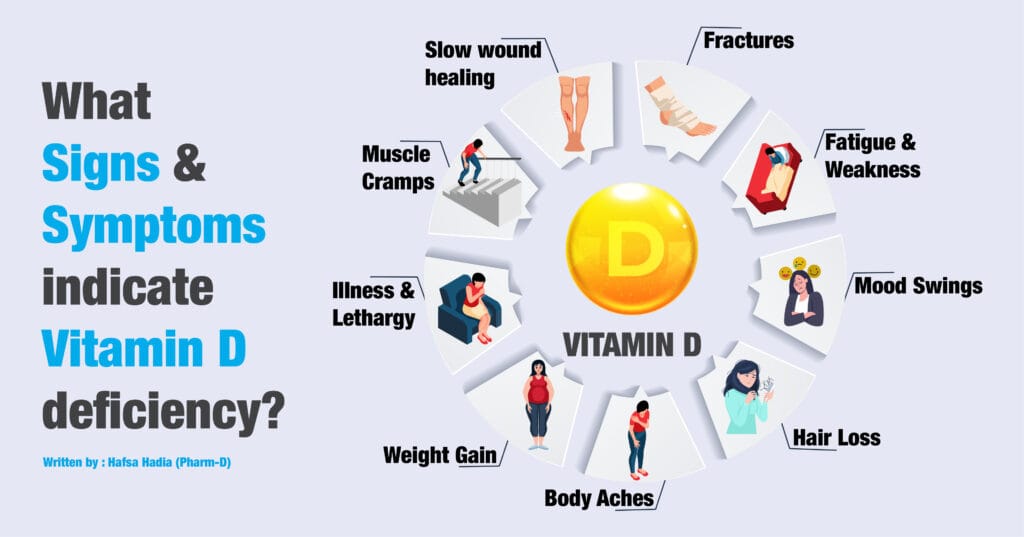Understanding Vitamin D Deficiency and How to Overcome It
Vitamin D is a crucial fat-soluble vitamin that plays a significant role in maintaining strong bones, enhancing mental health, and improving sleep quality. Despite its importance, vitamin D deficiency is becoming increasingly common, with nearly 25% of U.S. adults experiencing low levels. This article explores what vitamin D deficiency looks like, its symptoms, and practical ways to address it.
Symptoms of Vitamin D Deficiency
Vitamin D deficiency can often go unnoticed as many people do not exhibit symptoms. However, when symptoms do occur, they may include:
- Fatigue: Persistent tiredness or lack of energy.
- Bone Pain or Achiness: Unexplained pain or discomfort in the bones.
- Muscle Weakness: Difficulty performing physical tasks that were once easy.
- Mood Changes: Feelings of sadness or depression.
- Hair Loss: Unusual thinning or loss of hair.
- Loss of Appetite: Decreased interest in eating.
- Increased Susceptibility to Illness: Getting sick more often than usual.
- Pale Skin: Lighter complexion that is unusual for the individual.
If you experience these symptoms, it is advisable to consult a healthcare professional. A simple blood test can determine if your vitamin D levels are within a healthy range.
Sources of Vitamin D
1. Dietary Sources
Getting enough vitamin D from your diet can be challenging since it is found in relatively few foods. Here are some sources:
- Naturally High in Vitamin D:
- Fatty Fish: Salmon, trout, tuna, and mackerel.
- Canned Fish: Herring and sardines.
- Egg Yolks
- Beef Liver
- Fish Liver Oil
- Fortified Foods:
- Breakfast Cereals: Many cereals are fortified with vitamin D.
- Milk: Both dairy and non-dairy milk like almond and soy milk often have added vitamin D.
- Orange Juice: Some brands fortify their juice with vitamin D.
Always check nutrition labels to ensure that products are fortified with vitamin D.
2. Sunlight Exposure
Sunlight is a natural source of vitamin D. When your skin is exposed to UV rays, it produces vitamin D. To maximize this benefit:
- Daily Sun Exposure: Aim for a few minutes of sunlight exposure each day. This can be as simple as a brief walk outside or spending time in a sunny area.
- Wear Sunscreen: Protect your skin from harmful UV rays by applying sunscreen, even on cloudy days.
For those who cannot get regular sunlight due to lifestyle or geographical limitations, dietary adjustments or supplements may be necessary.
3. Vitamin D Supplements
Supplements are a reliable way to maintain adequate vitamin D levels, especially if dietary intake and sunlight exposure are insufficient. There are two main forms of vitamin D supplements:
- Vitamin D2 and D3: Both are effective, but vitamin D3 is generally more effective in raising blood levels of vitamin D. It is recommended to choose supplements with vitamin D3 or cod liver oil. The typical recommended daily allowance is 600 international units for young adults.
Safety of Vitamin D Supplements
Vitamin D supplements are generally safe when taken at recommended doses. Excess vitamin D is typically excreted through urine, reducing the risk of overdose. However, extremely high doses can lead to adverse effects such as nausea, vomiting, confusion, excessive thirst, and kidney stones. Always consult a healthcare provider before starting a new supplement, especially if you are on other medications.
Who Is at Greater Risk for Deficiency?
Certain groups are more susceptible to vitamin D deficiency, including:
- Individuals with Darker Skin: Melanin, which gives skin its color, reduces the skin’s ability to produce vitamin D from sunlight. Non-Hispanic Black individuals often have higher rates of deficiency.
- Obese Individuals: Fat cells can sequester vitamin D, making it less available for use in the body.
- People with Osteoporosis: This condition can impact bone health and vitamin D metabolism.
- Those with Malabsorption Disorders: Conditions like celiac disease or inflammatory bowel disease can hinder the body’s ability to absorb vitamin D.
Conclusion
Vitamin D is vital for overall health, influencing everything from bone strength to mood stability. With the increase in deficiency rates, it’s important to be aware of the symptoms, sources, and methods for maintaining adequate levels. By incorporating vitamin D-rich foods, getting reasonable sun exposure, and considering supplements if needed, you can support your health and well-being effectively.

